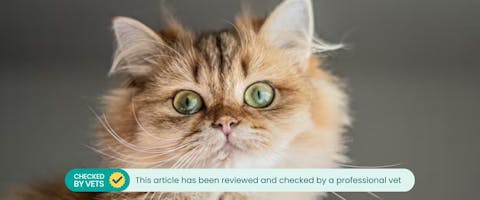Updated 14/06/2024
Pet parents and seasoned sitters will be no stranger to a little bit of drool. Although it’s typically associated with pooch pals (“cats rule, dogs drool” and all that), furry felines are also known to produce a bit of slobber every once in a while.
If you notice a damp patch where they’ve been resting or feel the moisture in their fur while stroking their chin, you might wonder “Why is my cat drooling?”. From sickness and stress to a sign of complete comfort, here are seven reasons for cat drooling.
Trending posts
Purr-use some of the top blogs our members have been loving this month- Top male dog names for your new furry friendGot a new furry family member in your pack? Check…

- Top female dog names for your new fluffy palWelcoming a new pooch into your family? Explore…

- 250+ gray cat names your silver feline will loveRecently welcomed a fluffy gray bundle of joy into…

- What are normal pet sitting rates?Discover the average pet sitting rates for animals…

- Unique dog names to stand out from the packDare to be different with our list of the best…

Why is my cat drooling?
1. Total relaxation
Wondering “Why is my cat drooling when I pet her?”. To answer this, we need to take a trip down memory lane to your cat’s kittenhood, when they would have pressed their little paws against their mom’s belly to get milk. The feeling of comfort mixed with the anticipation of a tasty snack would have got your kitten drooling, and it’s a habit that many don’t outgrow.
Fast forward to adulthood, and our feline friends still adore making biscuits on their favorite humans or soft spots when they’re feeling happy and relaxed, and a little bit of drool here and there may simply be their stamp of approval.
2. Stress and anxiety
Ever popped your fluffy friend in the car for a visit to the vet, only to wonder “Why is my cat drooling all of a sudden?”?
Cats are creatures of habit, and the slightest change in their daily routines can be extremely unsettling for them. Moments of stress and anxiety such as car rides and visits to the vet may lead to drooling temporarily, which isn’t normally cause for concern. That being said, pet parents should think about ways to dial down the drama on these outings (or ordeals) to make their kitty cat more comfortable.
3. Nausea and vomiting
You might notice your cat drooling a lot if they’re feeling nauseous or they’ve been vomiting. A variety of culprits including parasites, diseases, and gastrointestinal conditions could be stirring up trouble in their tummy.
Talk to your vet about running diagnostic tests and recommending the best course of treatment for your furry friend’s upset tum.
4. Exposure to a toxin
A curious cat might drool excessively after a close encounter with some sort of toxin, from poisonous plants and foods to toxic chemicals and cleaning products.
If you suspect your furry friend has been exposed to a toxin of some kind, take them to the vet immediately. There, they may administer medication or induce vomiting to make your purr pal feel better.
5. Dental issues
Problems in your furry feline’s mouth may go undetected for weeks, and painful diseases in the gums and teeth can also cause excessive drooling in cats.
Your vet will examine your cat’s mouth to check for infections, mouth ulcers, abscesses, and signs of gum disease or tooth resorption. They may recommend dental cleaning or even tooth extraction, and your furry friend might require a course of antibiotics.
6. Mouth injuries
From a nibble of an electric cord to a tussle with another kitty, there are plenty of situations that can cause injury to your furry friend’s mouth, leading to a little bit of extra drool.
7. Something’s stuck
If your furry friend has eaten something that won’t go down, this might cause sudden drooling and even vomiting. Foreign objects stuck in the mouth or esophagus should be considered a medical emergency, and may need to be surgically removed by a vet.
The bottom line is that drooling is not typically cause for concern if short-lived, but constant drooling may be a sign of a health problem, particularly if you spot other worrying symptoms.
Scheduling regular check-ups at the vet helps catch any issues early on, but if your furry friend develops a slobbery mouth between these check-ups, it’s a good idea to reach out to your vet for advice.
Meet our veterinary expert, Rebecca
This article has been checked by veterinarian Rebecca MacMillan, BVetMed MRCVS. Rebecca is a companion animal vet who has always had a passion for writing and client communication. Since her graduation from the Royal Veterinary college in 2009 she has gained a wealth of experience in first opinion small animal practice, in both clinical and managerial roles. She currently works in the South West and deals with a variety of routine and emergency appointments, but particularly enjoys medicine cases. Outside of work and writing, she enjoys spending time with her family, including her bouncy flat coated retriever George!

